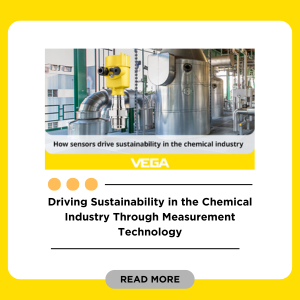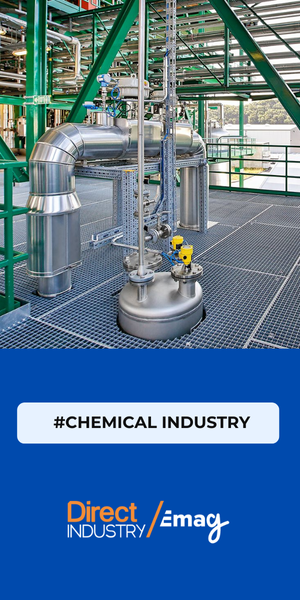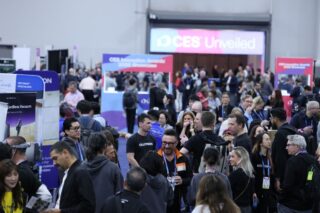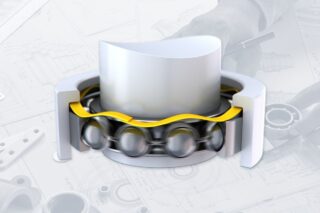At a time when ever-faster delivery times are being promised, some are taking a different approach. The logistics company, Skipper Group, has launched the “Slow Logistics” movement. This logistics concept aims to slow down delivery flows and consolidate orders to reduce packaging and lower the carbon footprint of e-commerce. We spoke with Fabien Jouvet, the president of Skipper Group, to learn more about this movement and how it encourages a complete rethink of the logistics chain.
| KEY INSIGHTS |
|---|
| 1/ Skipper Group’s “Slow Logistics” aims to extend delivery times and consolidate orders, reducing the carbon footprint of e-commerce and minimizing packaging waste. 2/ By consolidating deliveries and reducing transport frequency, clients like Spit have cut CO2 emissions by 52% and shipping costs by 62%, showing the financial and environmental benefits of this model. 3/ While initially seen as counterintuitive, the slow logistics approach is gaining traction, with increasing support from industry leaders. 4/ The hope is that consumers will embrace slower deliveries for environmental reasons, possibly incentivized by cost savings, and that this will reshape the future of logistics. |
Will slow logistics be the future of logistics? At first glance, the concept seems to go against the trend we’ve all been moving towards for years. While e-commerce companies compete with innovations like delivery drones to get packages to us faster and faster, some believe in extending delivery times instead.
The French logistics company, Skipper Group, has been working for four years to rethink the entire supply chain to make it more eco-friendly. The company, which employs 400 people and generates 60 million euros in revenue, is developing new, more eco-responsible packaging and a new logistics concept they’ve named “slow logistics.” They even created a dedicated position for this topic.
DirectIndustry sat with Fabien Jouvet, the president of Skipper Group.
Can you first describe Skipper Groupe?
Fabien Jouvet: “Skipper Groupe has two entities for two activities: Skipper Logistics and Skipper Transit. At Skipper Logistics, we manage logistics platforms and offer a multichannel B2B/B2C order preparation solution to clients who want to outsource their logistics to a third-party company. This is what we call logistics outsourcing — essentially our core business. We handle order preparation, opening boxes and cartons, picking individual items, preparing them, and then shipping them.
At Skipper Transit, our job is transport organization. We move our clients’ products from one place to another across the globe, using transportation methods that can be air, sea, or road. We operate in a 100% subcontracting model. We act as brokers. Our job is to organize the transportation of goods on behalf of our clients, always ensuring the most suitable transportation plan in terms of quality and competitiveness.”

What is slow logistics?
Fabien Jouvet: “Slow logistics is about telling our clients that we will achieve the remarkable feat of delivering their packages in three weeks to raise awareness of the need to slow down delivery flows. I’ve been in this business for thirty years, implementing logistics solutions to help clients deliver faster. But I think everyone is realizing that the pace is out of control. I believe that our logistics and transport systems will always need to be capable of delivering essential, critical products quickly. But there are items we can afford to receive more slowly. Otherwise, we’ll end up clogging our streets and towns with half-empty trucks that serve no purpose. I’ve always wanted, and so did my predecessors, to run a responsible company. I’ve been observing the rise of ecological awareness in our industry for quite some time. For the past four years, I’ve been trying to raise awareness about slowing down delivery flows and consolidating orders.”
What sparked the slow logistics movement?
Fabien Jouvet: “We incubated a startup five years ago called Welco, which aimed to reinvent parcel delivery by neighbors with a new delivery method that grouped deliveries. This not only optimizes the carbon impact of deliveries and eliminates second attempts, but also creates a sense of community.
The CEO of ‘C’est Qui Le Patron?’ [a socially responsible brand of food products, such as milk] wanted a new delivery system for its milk carton. We proposed the Welco system: consolidating orders and placing larger ones. And to consolidate orders, one option was to slow down the delivery flow. Instead of processing online orders as they arrived and sending them to Skipper Group for fulfillment, we held them, identifying geographic areas with many orders. When the revenue from a specific geographic area matched the logistics and transport costs, we gave the green light for delivery. So, instead of receiving fifty small orders at Skipper, we received one large order. Instead of preparing eighty individual milk cartons, we prepared eight packs of ten. This both optimized logistics and reduced packaging waste. We then sent one pallet on a single truck, with no load interruptions. Our first delivery took place on a Thursday night in November 2020, in a small village in the Jura region, marking a new customer experience. That’s how the idea of slow logistics came about.”
Is the industry ready to embrace this change?
Fabien Jouvet: “For four years, people have found this topic amusing. However, last June, we received the ‘Audacity Award’ at a logistics trade show, a recognition that shows we are capable of facing challenges. This year, I’ve started hearing the term ‘slow logistics’ mentioned more regularly at conferences. In early January, the CEO of a leading European logistics company even voiced support for slow logistics on LinkedIn. So, I believe that mindsets are beginning to shift.”

What benefits would professionals gain from this approach? Do your clients support it?
Fabien Jouvet: “We haven’t invented anything new. When I talk about order consolidation and slowing down flows, I’m referring to old industrial techniques, like the milkman’s delivery route or fixed-date shipments, which have always been used for financial optimization. What we’re proposing is a different perspective, showing that it’s not just about financial efficiency—it’s also about creating more responsible models.
We’re working with various companies, including a long-standing client, Spit, which manufactures drills. This year, we’ve pushed them to adopt order consolidation and grouping. The goal is to stop sending parcels to the same location every day. We’ll still receive and prepare orders daily, but we’ll only deliver once a week. The result? A 52% reduction in CO2 impact and a 62% reduction in shipping costs.”
How can you encourage end customers to change their habits? Through financial incentives?
Fabien Jouvet: “The ultimate dream is that customers, when ordering online, will have the option to choose slow logistics, perhaps with a financial incentive. However, I believe awareness can shift without purely financial motivation. The new generation of business leaders has a different perspective.”
Does this philosophy go against Amazon’s ultra-fast delivery model?
Fabien Jouvet: “There’s a video of Jeff Bezos from about ten years ago where he asks, ‘Do you really think that in ten years, people will ask for slower deliveries?’ I think he was wrong. However, I refuse to position myself as being anti-Amazon. I just want to offer a different perspective. It’s only the beginning but something is going to happen, I am sure.”
When will there be a Slow Logistics certification?
Fabien Jouvet: “I don’t know if we’ll have a slow logistics certification in the future, but it would be funny if we did. For now, I’d already like us to be able to put a Slow label on packaging—that would be a good start. 70% of our clients’ packaging is already Slow. In any case, more and more people are talking about Slow logistics today. I believe that mayors will eventually be forced to restrict truck access in cities. This will spark a logistics movement in the outskirts, aimed at consolidating and grouping orders for delivery, and that will be Slow logistics. The movement is already taking shape, and that’s what’s going to happen. There’s no other way forward.”











